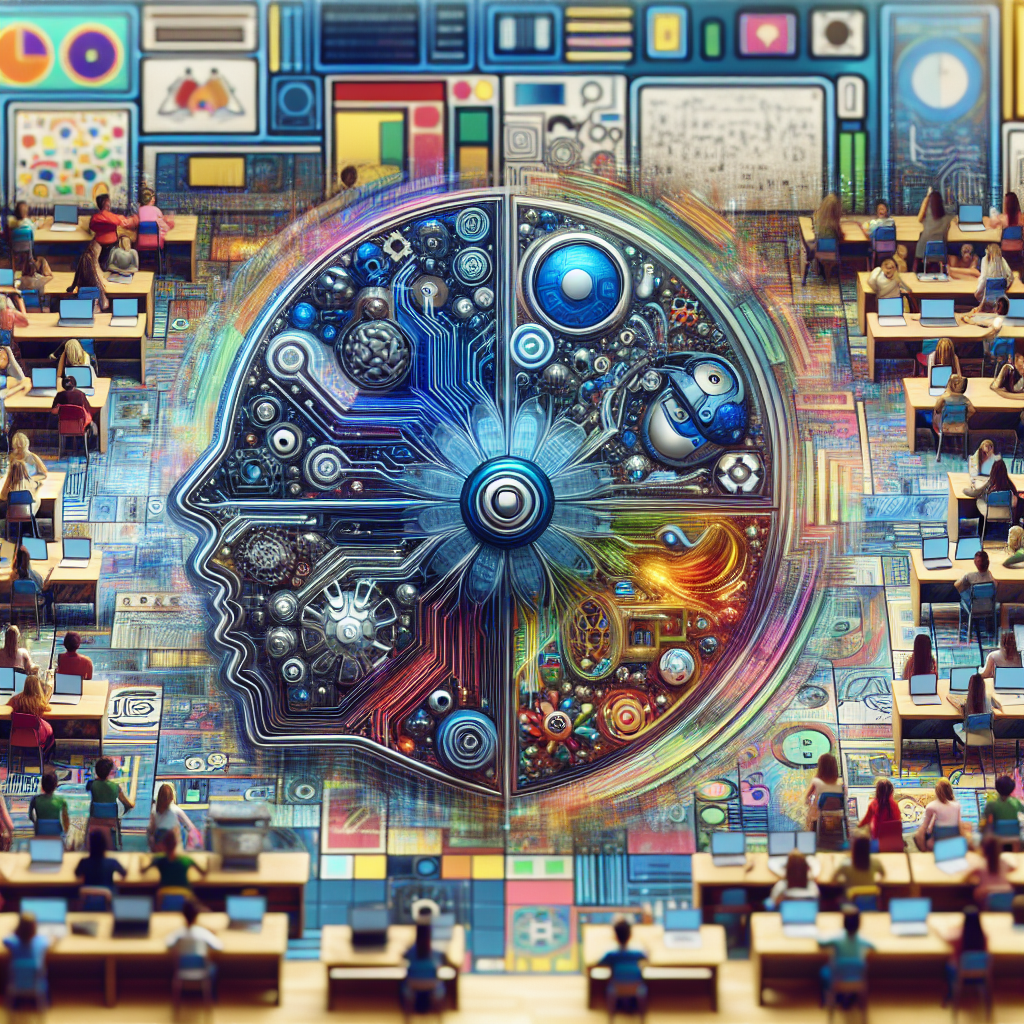Artificial Intelligence (AI) has been making significant strides in various industries, including education. One area where AI is beginning to play a crucial role is in Social Emotional Learning (SEL) in schools. SEL is the process through which students acquire and effectively apply the knowledge, attitudes, and skills necessary to understand and manage emotions, set and achieve positive goals, feel and show empathy for others, establish and maintain positive relationships, and make responsible decisions.
By integrating AI into SEL programs, schools can enhance the well-being of students and foster a positive learning environment. This article explores the intersection of AI and SEL and how it is revolutionizing education for the better.
How AI is transforming SEL in schools
AI has the potential to revolutionize SEL in schools in several ways:
1. Personalized learning: AI can analyze student data, such as their behavior, emotions, and learning patterns, to create personalized learning experiences. This allows teachers to tailor their instruction to meet the individual needs of each student, helping them develop the necessary social and emotional skills.
2. Real-time feedback: AI can provide real-time feedback to students on their social and emotional skills, helping them understand how their actions and behaviors impact others. This immediate feedback can help students self-regulate their emotions and improve their social interactions.
3. Predictive analytics: AI can use predictive analytics to identify students who may be at risk of social and emotional difficulties. By identifying these students early on, schools can provide targeted interventions to help them develop the necessary skills to thrive.
4. Virtual counselors: AI-powered virtual counselors can provide students with support and guidance on social and emotional issues. These virtual counselors can offer a safe and non-judgmental space for students to express their emotions and receive advice on how to navigate challenging situations.
5. Gamification: AI-powered games and simulations can help students practice and develop their social and emotional skills in a fun and engaging way. By gamifying SEL, schools can make the learning process more interactive and enjoyable for students.
Benefits of AI in SEL
The integration of AI into SEL programs offers several benefits for students, teachers, and schools:
1. Improved student outcomes: By personalizing learning experiences and providing real-time feedback, AI can help students develop essential social and emotional skills, leading to improved academic performance and overall well-being.
2. Enhanced teacher support: AI can assist teachers in identifying students who may need additional support with their social and emotional development. This allows teachers to provide targeted interventions and resources to help these students succeed.
3. Increased efficiency: AI can automate time-consuming tasks, such as data analysis and monitoring student progress, allowing teachers to focus more on teaching and supporting students.
4. Greater access to resources: AI-powered virtual counselors and online tools can provide students with access to support and resources that may not be available in their school. This can help bridge the gap in mental health services for students in underserved communities.
5. Promote inclusivity: AI can help create a more inclusive learning environment by providing personalized support to students from diverse backgrounds and learning styles. This can help ensure that all students have the opportunity to develop their social and emotional skills.
Challenges of AI in SEL
While AI offers many benefits for SEL in schools, there are also challenges that need to be addressed:
1. Privacy concerns: AI collects a vast amount of data on students, including their emotions and behaviors. Schools must ensure that this data is protected and used responsibly to safeguard student privacy.
2. Bias in algorithms: AI algorithms can be biased based on the data they are trained on, leading to unfair outcomes for certain groups of students. Schools must be vigilant in monitoring and addressing biases in AI systems to ensure equitable access to SEL programs.
3. Lack of human connection: While AI can provide valuable support and resources, it cannot replace the human connection that is essential for social and emotional development. Schools must strike a balance between using AI tools and fostering meaningful relationships between students and teachers.
4. Implementation challenges: Integrating AI into SEL programs requires significant investment in technology, training, and infrastructure. Schools must carefully plan and execute their AI initiatives to ensure successful implementation.
FAQs
Q: How can AI help students develop empathy and emotional intelligence?
A: AI can analyze student data to identify areas where students may need support in developing empathy and emotional intelligence. By providing personalized feedback and resources, AI can help students practice and improve these skills.
Q: Can AI replace human counselors and teachers in SEL programs?
A: While AI can provide valuable support and resources, it cannot replace the human connection that is essential for social and emotional development. Human counselors and teachers play a crucial role in supporting students and fostering meaningful relationships.
Q: How can schools ensure that AI systems are not biased?
A: Schools must carefully monitor and address biases in AI systems by regularly auditing algorithms, diversifying training data, and involving stakeholders in the decision-making process. It is essential to prioritize equity and inclusivity in the design and implementation of AI systems.
Q: What are some examples of AI-powered tools for SEL in schools?
A: Some examples of AI-powered tools for SEL in schools include virtual counselors, personalized learning platforms, emotion recognition software, and gamified learning applications. These tools can help students develop social and emotional skills in a fun and engaging way.
In conclusion, AI has the potential to revolutionize SEL in schools by providing personalized learning experiences, real-time feedback, and predictive analytics to support student well-being. While there are challenges to overcome, the benefits of integrating AI into SEL programs far outweigh the risks. By leveraging AI technology responsibly and ethically, schools can create a more inclusive and supportive learning environment for all students.

